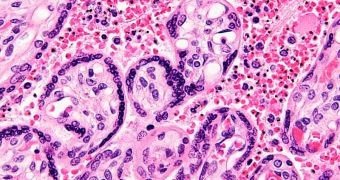Over the past few years, the malaria bug has begun displaying worrying signs of resistance to the drugs used to treat infected patients. Now, researchers at the University of Maryland, in Baltimore, say they were able to discover the gene that enables the parasite to survive in previously-immune hosts.
When even the potent drug artemisinin began failing, researchers figured out that they were dealing with a huge problem. Malaria affects millions of people around the world, but especially in poor countries. Until now, at least a portion of the population – those previous-vaccinated – were immune.
When the bug mutated, even those individuals started developing the condition. Fortunately, fully-artemisinin-resistant malaria has yet to reach Africa, which is its main killing ground. UMB malaria expert Christopher Plowe says that the bug would cause a global health catastrophe there.
Thus far, the new version of the parasite only affects southeast Asia, and scientists are struggling to prevent it from spreading through the densely-populated regions of India and Bangladesh. A paper on the current distribution of malaria appears in the December 18 issue of the top scientific journal Nature.
“We will very soon know where artemisinin resistance is and where it has spread,” explains study co-author Pascal Ringwald, who is also the coordinator of drug resistance and containment programs for the Global Malaria Program at the UN World Health Organization (WHO) in Geneva, Switzerland.
Malaria was until a few years ago treated with chloroquinone, but that treatment is less and less effective nowadays. Currently, artemisinin-based drugs – which combine the substance with several other chemicals – are our best approach against the Plasmodium falciparum parasite.
“One of the really worrying features of this data is that we clearly see multiple independent origins of resistance alleles occurring in just Cambodia,” explains geneticist Timothy Anderson, who is based at the Texas Biomedical Research Institute, in San Antonio.
This appears to suggest that resistance to the potent drug is not something that developed locally, within a single culture or infected person, but rather an adaptation widely spread across the board.
Finding ways to kill malaria before it spreads this adaptation is critically important, both from a humanitarian and economical point of view. Since this disease affects so many million people around the world, treating it already sets public healthcare budgets back a lot yearly, Nature reports.

 14 DAY TRIAL //
14 DAY TRIAL //